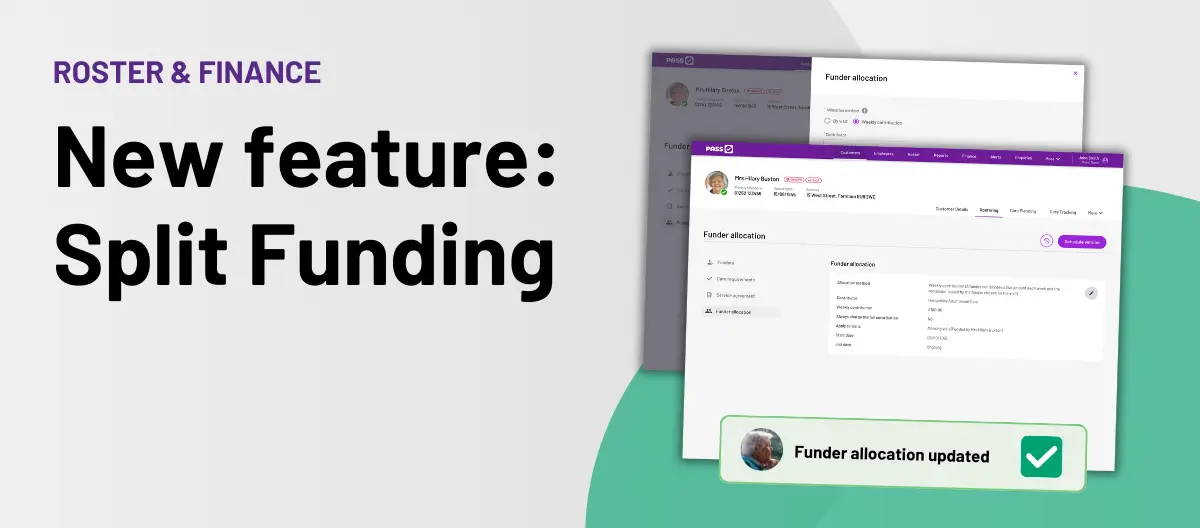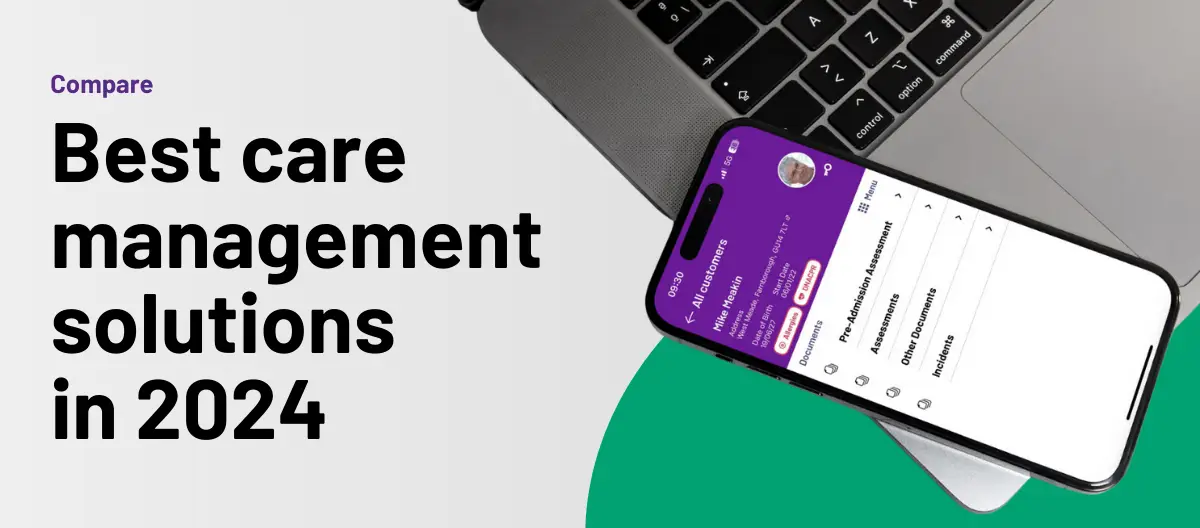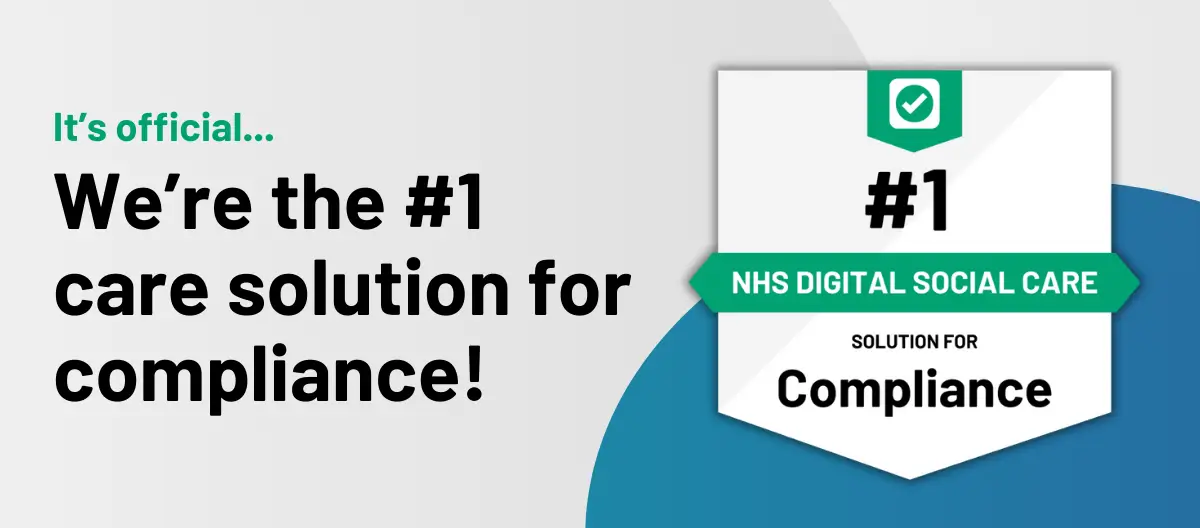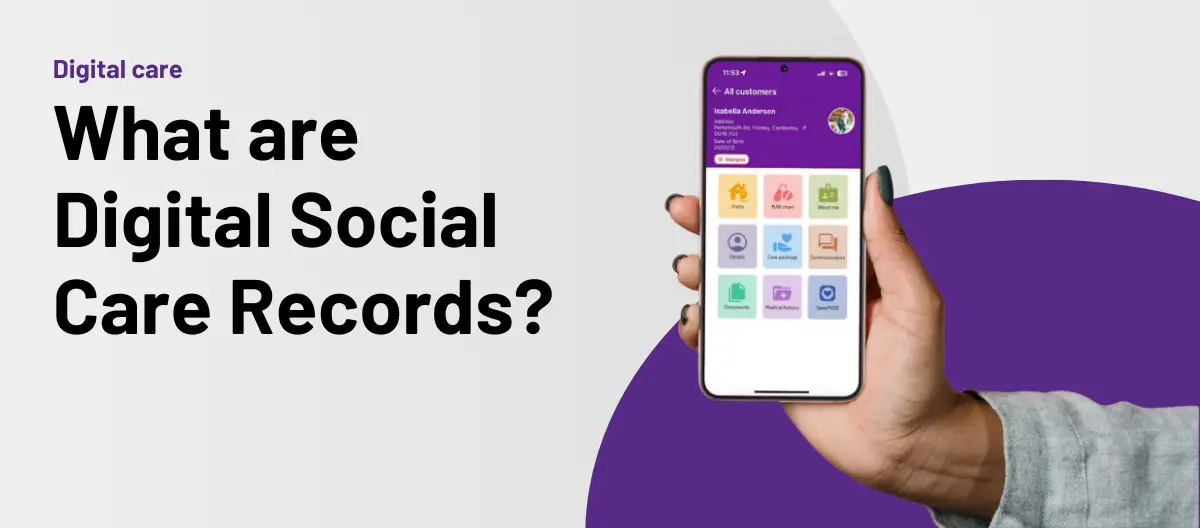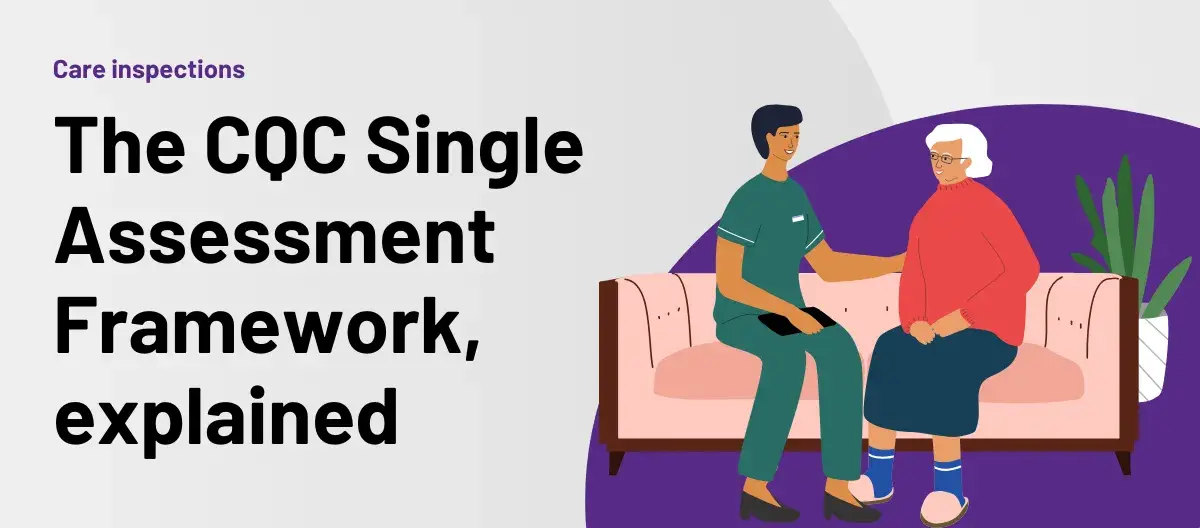
The Care Quality Commission (CQC) has introduced a new way of assessing health and social care services in England, known as the Single Assessment Framework (SAF). If you’re a social care provider, understanding this framework is essential for your service’s compliance and quality of care.
Here’s everything you need to know.
Table of Contents
A brief introduction to the CQC Single Assessment Framework
The Single Assessment Framework innovates health and social care assessments in England. Focusing on a person-centred approach, it simplifies the evaluation process and better reflects diverse care delivery. The SAF is delivered via a team of inspectors supported by a newly developed CQC provider portal.
Key elements like the five key questions (safe, effective, caring, responsive, well-led) and the four-point ratings scale, however, will be retained for consistency in quality assessment.
What's changed with the CQC's new Single Assessment Framework?
The Single Assessment Framework represents a significant shift in how care quality is measured.
Unlike the existing system, which relies on Key Lines of Enquiry (KLOEs), the new framework places more emphasis on external best practice, evidenced via the CQC quality statements.
This change aims to provide a more comprehensive and personalised assessment of care services.

What are single assessment framework quality statements?
Quality statements – written in the style of ‘We statements’ and ‘I statements’ – are the backbone of the CQC’s Single Assessment Framework.
They are detailed descriptions of what high-quality care looks like in practice. Each statement outlines specific standards and expectations for care providers, focusing on personalised and effective care delivery.
What are the CQC 'We statements'?
‘We statements’ articulate the commitments and responsibilities of care providers, local authorities, and integrated care systems. They focus on what these entities should do to deliver high-quality, person-centred care.
- Example: A ‘We statement’ might be, “We actively involve individuals and their families in care planning, ensuring their preferences and needs guide our actions.” This reflects the provider’s commitment to inclusive and responsive care planning.
- Impact: By framing expectations in ‘We statements,’ the SAF provides clear guidelines for providers on delivering care that meets CQC standards. It helps in setting benchmarks for quality and accountability in care services.
What are the CQC 'I statements'?
‘I statements’ are designed to reflect the experiences and expectations of individuals receiving care. They articulate what individuals should expect and experience in terms of care quality and personalisation.
- Example: An ‘I statement’ might be, “I am treated with respect and my care is tailored to my unique needs and preferences.” This statement emphasises the individual’s right to respectful, personalised care.
- Impact: These statements help care providers understand and measure the quality of care from the individual’s viewpoint, ensuring that services are not just clinically effective but also personally meaningful and respectful.
Examples of 'We' and 'I' quality statements
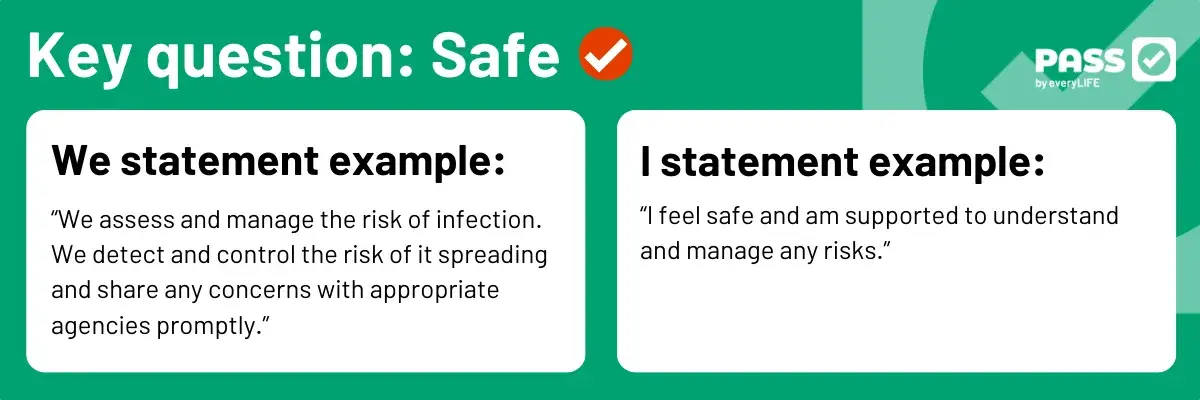
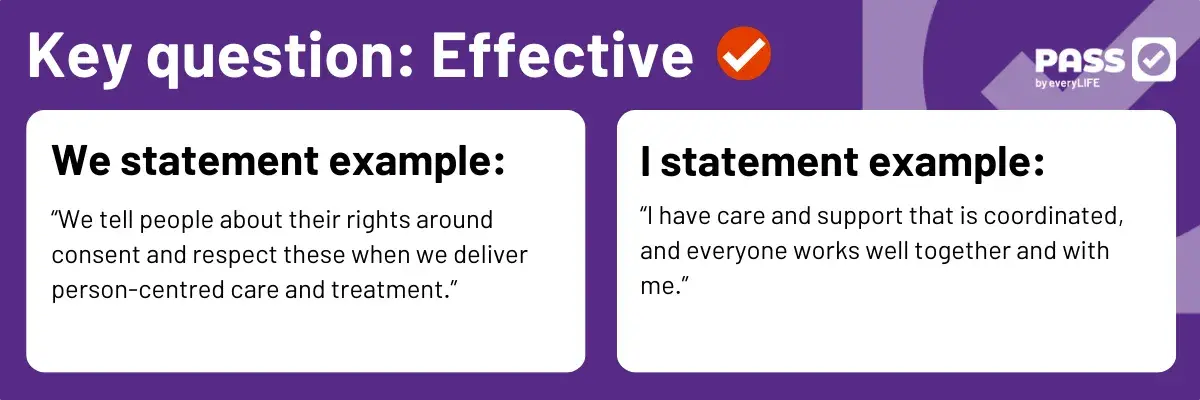
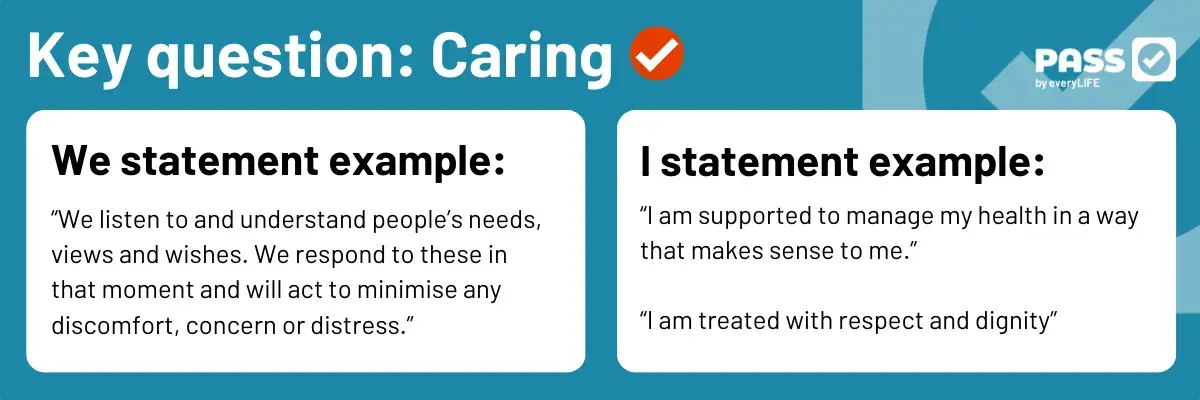
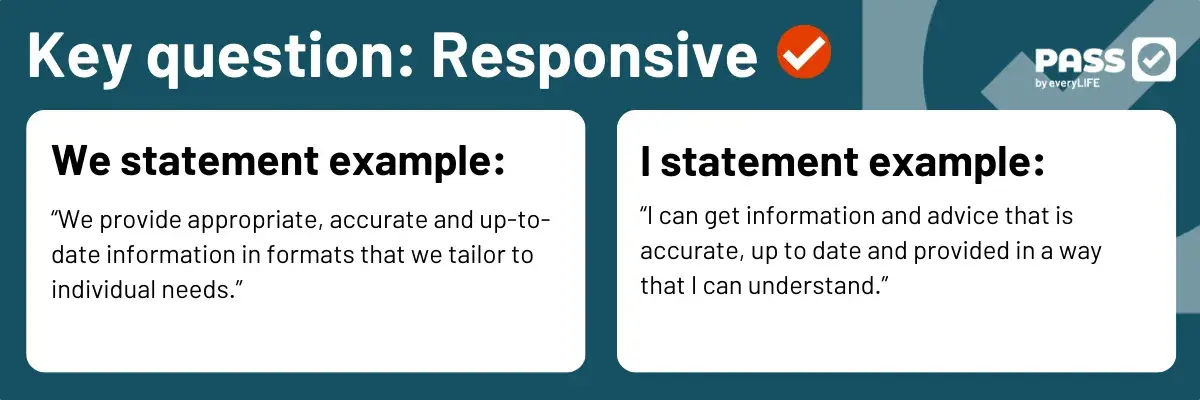
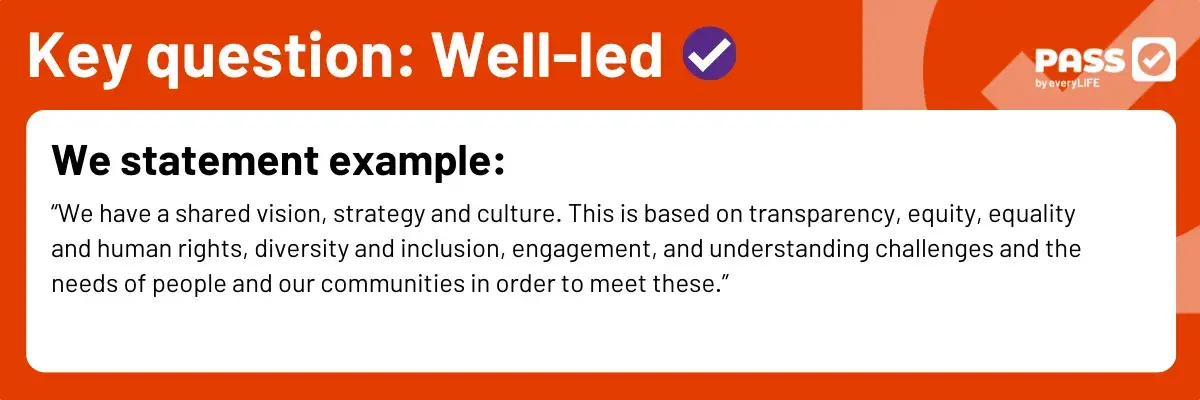
How will the CQC quality statements be used to gather evidence?
These statements support the CQC’s assessment team in collecting and evaluating evidence, now organised into six distinct categories.
The CQC Single Assessment Framework categories aim to enhance the transparency and consistency of their judgements. The six categories include:
- People’s experience of health and care services
- Feedback from staff and leaders
- Feedback from partners
- Processes
- Outcomes
- Specific evidence categories for each sector
The evidence will be underpinned by externally sourced best practices, such as NICE and ICO Guidance.
What do I need to do to prepare for the SAF?
Care providers need to familiarise themselves with the new changes. This may result in a review of current practices and identifying areas for improvement.
Digital care management solutions, like PASS, help care providers comply with the Single Assessment Framework by enabling them to demonstrate, clearly and efficiently, quality care against the new framework.
Tip: To prepare for the Single Assessment Framework, care providers should attend CQC webinars and look out for regular updates on the CQC website.
How PASS can support you with the single assessment framework
The CQC has confirmed that a good digital records system will help care providers deliver safe, effective, compassionate, high-quality care.
Our care management software simplifies capturing and accessing care information, enhancing the efficiency and safety of care. By facilitating real-time data updates and secure sharing across care settings, PASS helps providers respond quickly to changing needs, reducing risks such as medication errors.
Moreover, PASS’s digital system supports seamless integration within the health and social care ecosystem. Our features, including secure data handling and cloud-based storage, meet the CQC’s guidelines on cybersecurity and data management.
This makes PASS an essential tool for care providers aiming to improve service quality, ensure compliance with the SAF, and contribute to a more integrated care system.
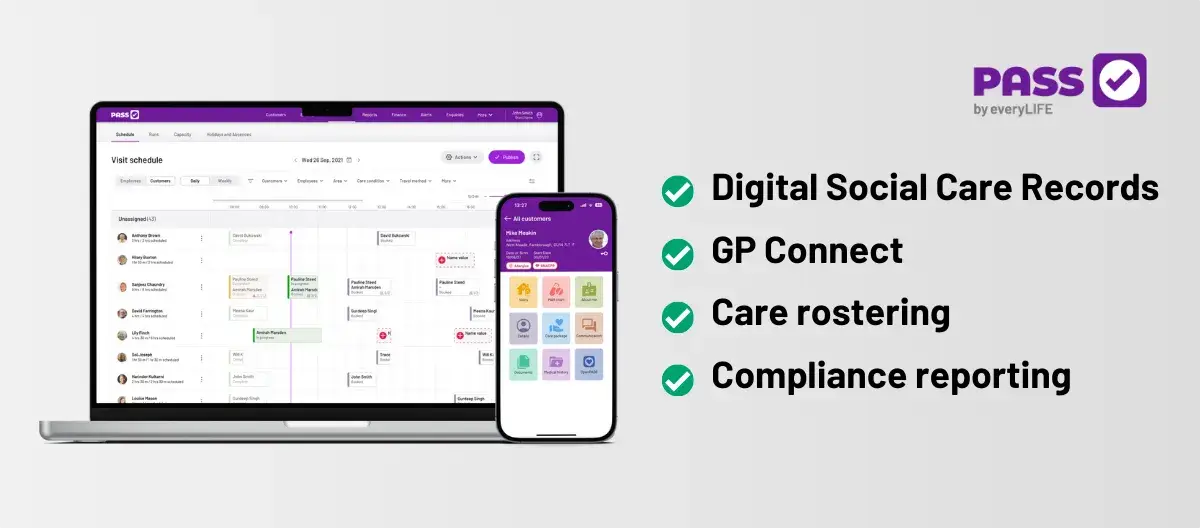
Timeline of the SAF implementation
The SAF was introduced in January 2023 and is being implemented in phases. This gradual rollout allows care providers to adapt to the new standards without disrupting existing care practices.
Here’s when and where the SAF is being rolled out:
21 November 2023
21 November – 04 December 2023
05 December 2023
08 January 2024
23 January 2024
06 February 2024
Key takeaways
- The CQC’s Single Assessment Framework (SAF) is a new method for assessing health and social care services in England, focusing on compliance and quality of care.
- The SAF uses ‘quality statements’ instead of the existing Key Lines of Enquiry, aiming for a more comprehensive and individualised assessment of care services.
- ‘I’ and ‘We’ statements are central to SAF, with ‘I statements’ focusing on individual care experiences and ‘We statements’ outlining care providers’ responsibilities.
- Starting November 2023, the SAF will be rolled out in phases across various regions, with full implementation expected by February 2024.
- Care providers must align their services with the new quality statements, involving a review and adaptation of current practices.
- PASS care management software can assist providers in aligning their services with the SAF, ensuring compliance and quality care.
Single Assessment Framework FAQs
The new Single Assessment Framework (SAF) aims to provide a simpler, person-centred approach to inspections, supported by an integrated assessment team (an inspector and an assessor) and new technology, such as the new provider portal.
Unlike the existing Key Lines of Enquiry (KLOEs), the SAF uses ‘quality statements’ for a more detailed and individualised assessment of care services.
Quality statements are the commitments that providers, commissioners and system leaders should live up to. Expressed as ‘we statements’, they show what is needed to deliver high-quality, person-centred care. ‘I Statements’ focus on individual care experiences, reflecting what individuals should expect in terms of care quality.
The SAF rollout began in November 2023 and will be implemented in phases across different regions, with full implementation expected by March 2024.
Providers should familiarise and align their services with the new quality statements, which may involve reviewing and adapting current practices to meet the new standards.
Yes, DCSRs will help providers align their services with the SAF quality statements. Digital records facilitate easier access to information, enhance the efficiency of care response, and ensure secure sharing of data across care settings.
